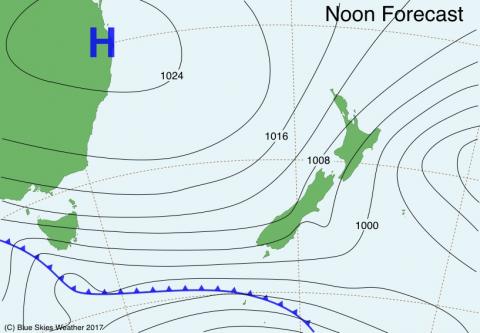-
More
Weather Forecast
- What's On
- Programmes
- Noticeboard
- Tuning
- Services
- DVD Shop
- About
Friday, April 15, 2016
The country is more reliant on wireless internet than ever before, with total broadband connections reaching 1.23m.
Kiwis are continuing to move away from fixed-line services on the copper network to fibre, which is up 21%.
Chorus says it's now completing an average of 480 fibre connections per weekday.
Fixed-line connections are slowly shrinking and now sit at about 1.74m.
The government has extended its target for the fibre telecommunications network to 80% of the country.
It's estimated that will cost about $1.8b to build.
Wednesday, April 13, 2016
Three technology start-up companies with strong links to Dunedin have each attracted almost half a million dollars in government loans.
Each is getting $450,000 in repayable loans, through the government agency Callaghan Innovation.
The companies with local ties are Mastaplex, Upstream Medical Technologies and Fishery Logistics.
They're among 11 technology start-ups granted loans in the latest round of support through Callaghan Innovation.
It's for companies to commercialise new intellectual property and get products to market.
Loans are repaid as the ventures begin to earn revenue.
Tuesday, April 12, 2016
Almost 300 houses were sold in the city last month, further boosting the property market.
That equates to an increase of 33% compared to last March.
The average price for local homes being sold sits around $305,000.
It was slightly higher in February but values are up 9% on a year ago.
Sales are also rising in other parts of Otago, where the median settling price has jumped about $20,000.
Friday, April 8, 2016
Dunedin house values are up by 8% compared to a year ago.
The latest quotable value data has just been released, showing the city's housing stock has jumped in worth by 2% in the last three months alone.
South Dunedin is leading the way, with the largest increase in the average property's worth to just under $300,000.
On a whole the city's average home is valued at about $315,000.
That's a 10% rise since the 2007 market peak.
Thursday, April 7, 2016
Thumb not available yet
The Dunedin City Council has lost some money selling its shares in mining, energy and petroleum companies.
Councillors made an ethical move to divest last year, and subsequently sold shares in four large international firms.
The council received almost $1.2m for the equities.
But that was about $380,000 less than their combined worth.
However if the council had retained those investments, their falling value would have resulted in a loss of about $150,000.
Mayor Dave Cull and some other councillors are still happy with the divestment, away from unstable industries.
Thursday, April 7, 2016
It's becoming more common for businesses to invest in research and development, leading to gains through innovation.
Statistics New Zealand has just released the latest data on the topic, showing about half of all companies are spending money on developing better goods and services.
The government's welcoming the figures, happy more firms are taking a leadership approach to product enhancement.
Research and development is seen as an effective way to diversify and strengthen the economy.
Associated spending rose by almost $200m last year, to $1.4b.
Wednesday, April 6, 2016
New Zealand Post is planning to sell almost half of Kiwibank to other government agencies.
The deal is expected to be confirmed later this financial year and values Kiwibank at $1.1b.
It would see the New Zealand Super Fund owning 25% of the company.
The Accident Compensation Corporation would own 20%.
Kiwibank is a subsidiary of New Zealand Post, and the deal would mean it stays within state ownership.
The government would have a right of first refusal over any further sale of shares.
Thursday, March 31, 2016
Thumb not available yet
The Otago Community Trust is pledging to donate a further $6m over the next 12 months.
The trust gives money to community groups and organisations during several funding rounds throughout its financial year.
It's prioritising grants for projects involving house insulation, cycleways, youth health and well-being, and rural health.
Already the trust's spent $1.2m on those initiatives this financial year to date.
The organisation has almost $260m invested.
Since its inception in the mid 1990s it's donated more than $145m.
Tuesday, March 29, 2016
Dunedin City Council debt is slightly higher than budgeted for this financial year to date.
The latest figures show the council's net deficit was $5.8m for the eight months to the end of February.
That's almost $400,000 worse than budget.
It's due to lower returns on international investments, higher depreciation costs and reduced revenue.
But the council's also had less expenditure than expected for the same period, and lower interest costs.
Over the long term it's paying off debt faster than planned.
Thursday, March 24, 2016
A local manufacturing company is celebrating a 75% increase in its half-yearly profit.
Scott Technology had a surplus before tax of $2.8m for the six months to the end of February.
That compares to its $1.6m profit for the first half of the 2015 financial year.
The company's half-yearly revenue has almost doubled, to $42.8m.
Its orders are at a record high, in part due to expanded operations.
Scott Technology's now planning to buy part of a German engineering company.
Wednesday, March 23, 2016

The Bradken foundry in central Dunedin has been sold, after two years on the market.
It's not clear whether all five of the company's titles behind the Dunedin Railway Station have been sold, or to whom.
Property agents are keeping tight-lipped about the deal, saying the owner must give permission for public comment.
Bradken's Australian headquarters has previously refused to comment about the premises and its local operations.
It listed the Tewsley Street complex in early 2013 after leasing the Hillside workshops foundry for five years.
The company's industrial site had a collective capital value of $1.7m around that time.
Thursday, March 17, 2016
A flourishing services sector, including retail and accommodation, is boosting the country's gross domestic product.
Last year the economy's value was $246b in current prices.
GDP has been rising in conjunction with service industries, which are up 0.8% overall.
Growth in trade and hospitality was offset slightly by a slowing down in the agriculture and manufacturing sectors.
Household spending increased by 1% last year, with more money going into restaurant and ready-to-eat meals, as well as travel and accommodation.
Wednesday, March 16, 2016
A drop in export earnings is driving down the country's account balance, to a $1.9b deficit.
That was in the last quarter, when the value of exported goods fell by almost $600m.
Import values were also reduced, following a record high in the previous quarter.
The dairy downturn is largely being blamed for decreasing export revenue.
Farmers are bracing themselves for a low seasonal payout, as the industry continues to decline.
Thursday, March 10, 2016
Retail spending continues to increase throughout the country, with large growth in the consumables and hospitality industries.
They were both up almost 2% last month, collectively expanding by $45m.
The sector's total electronic spending in February reached $4.6b.
That's an almost 10% jump from the corresponding period last year.
The expansion was despite a significant drop in fuel, down $12m for the month.
Wednesday, March 9, 2016
Otago's gross domestic product has risen to just over $10b.
At the latest count it equated to about 4% of the national total, which was worth more than $241b.
The region's had steady growth, with GDP doubling since the millennium.
Per capita Otago's sitting in the middle of the pack, with seven regions doing better and the same number falling behind.
The North Island is leading the way, representing just over two thirds of the country's economy.
Taranaki has the highest performance taking population into account.

